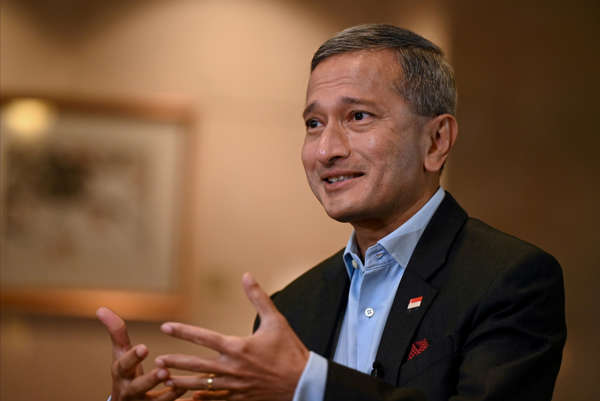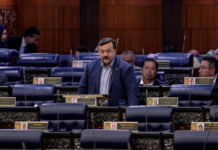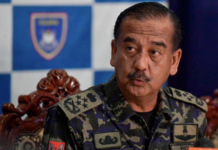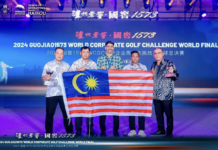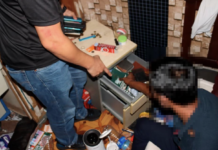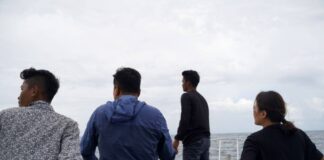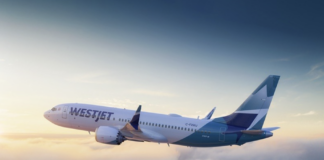SINGAPORE, Sept 13 — A stable and prosperous Malaysia is good for Singapore and the region, says the republic’s Minister for Foreign Affairs Dr Vivian Balakrishnan.
Balakrishnan said this at Parliament today in responding to questions, among others, whether the current political situation in Malaysia has any implications for Singapore.
“Naturally, Singapore government watches developments in Malaysia very closely,” he said, adding that “Singapore’s consistent position is to work with the government of the day.”
The minister noted that Singapore and Malaysia will always remain closely intertwined and interdependent.
“We are committed to engaging and cooperating with the new Malaysian government to seek win-win outcomes for the long term.
“This is especially important so that both our countries can recover and emerge stronger from the current COVID-19 pandemic situation,” he said.
The minister also expressed his confidence that the bilateral cooperation will continue to expand for the mutual benefit of citizens on both sides.
Balakrishnan noted that Singapore leaders were familiar with the current Malaysian Prime Minister Datuk Ismail Sabri Yaakob, and his cabinet members.
Ismail Sabri was sworn in as the new prime minister on Aug 21, 2021 and his Singapore counterpart Lee Hsien Loong spoke with him the very next morning.
“And indeed we have worked with them on many bilateral and regional issues over the years,” he said.
Balakrishnan recalled that he himself and Ismail Sabri have known each other from the days when they were both ministers for Youth and Sports.
“We also met during my more recent visit to Malaysia in March earlier this year when we discussed the COVID-19 safeguards and the cross-border travel arrangements.
“My counterpart Datuk Saifuddin Abdullah is also a familiar face. We worked closely together when he held the Foreign Affairs portfolio between 2018 and 2020,” he said.
Besides the political leadership, Balakrishnan said the respective Civil Service maintained good relations and communications with each other and officials on both sides have been in regular contact.
Balakrishnan stressed that Singapore remained committed to maintaining a constructive and positive relationship with the current Malaysian government.
“We will also follow through with our commitments or bilateral projects and our partnerships,” he said.
He told the house that Singapore has enjoyed good relations with successive Malaysian governments and leaders and cooperated well across a very wide range of areas.
The minister cited that they acted quickly in the early days of the COVID-19 pandemic to set up the Singapore-Malaysia special working committee in order to coordinate both countries’ measures to minimise disruptions to companies, workers, and citizens.
The committee was co-chaired by Senior Minister & Coordinating Minister for National Security Teo Chee Hean and the then Senior Minister and Minister of Defense of Malaysia Ismail Sabri.
Balakrishnan said several travel arrangements including the safe movement of cargo trucks, the Periodic Commuting Arrangement (PCA) for workers, and the framework for death and critically ill emergency visits were also launched.
“These travel arrangements will, of course, continue,” he said.
The minister was also asked how the Singapore government will move forward on the many bilateral partnerships with Malaysia such as the Johor Bahru-Singapore Rapid Transit System (RTS) Link and COVID-19 border control measures.
Responding to the RTS Link project, he said the construction “has in fact commenced on both sides and there has been good progress.”
He said the project will be a game-changer when it commences services at the end of 2026, and “we look forward to its significantly improving connectivity between Singapore and Johor Bahru, and easing congestion on the causeway.”
Singapore and Malaysia have reached an agreement to resume the RTS Link project in July last year.
Meanwhile, on COVID-19 border control measures, the minister said : “We are continuing discussions with the Malaysian government on the safe and gradual resumption of cross-border movement of people, as we enter the endemic phase.”
“This would require mutually agreed Public Health Protocols to preserve public health and the safety of residents on both sides while taking into account, the medical resources available, for example,” he said.
Balakrishnan noted that currently both sides have been working towards recognising each other’s vaccine certificates.
“The discussions have been fruitful and constructive with good progress, and this will certainly help us map our path forward for a safe reopening of our borders when the situation permits it,” he said.




